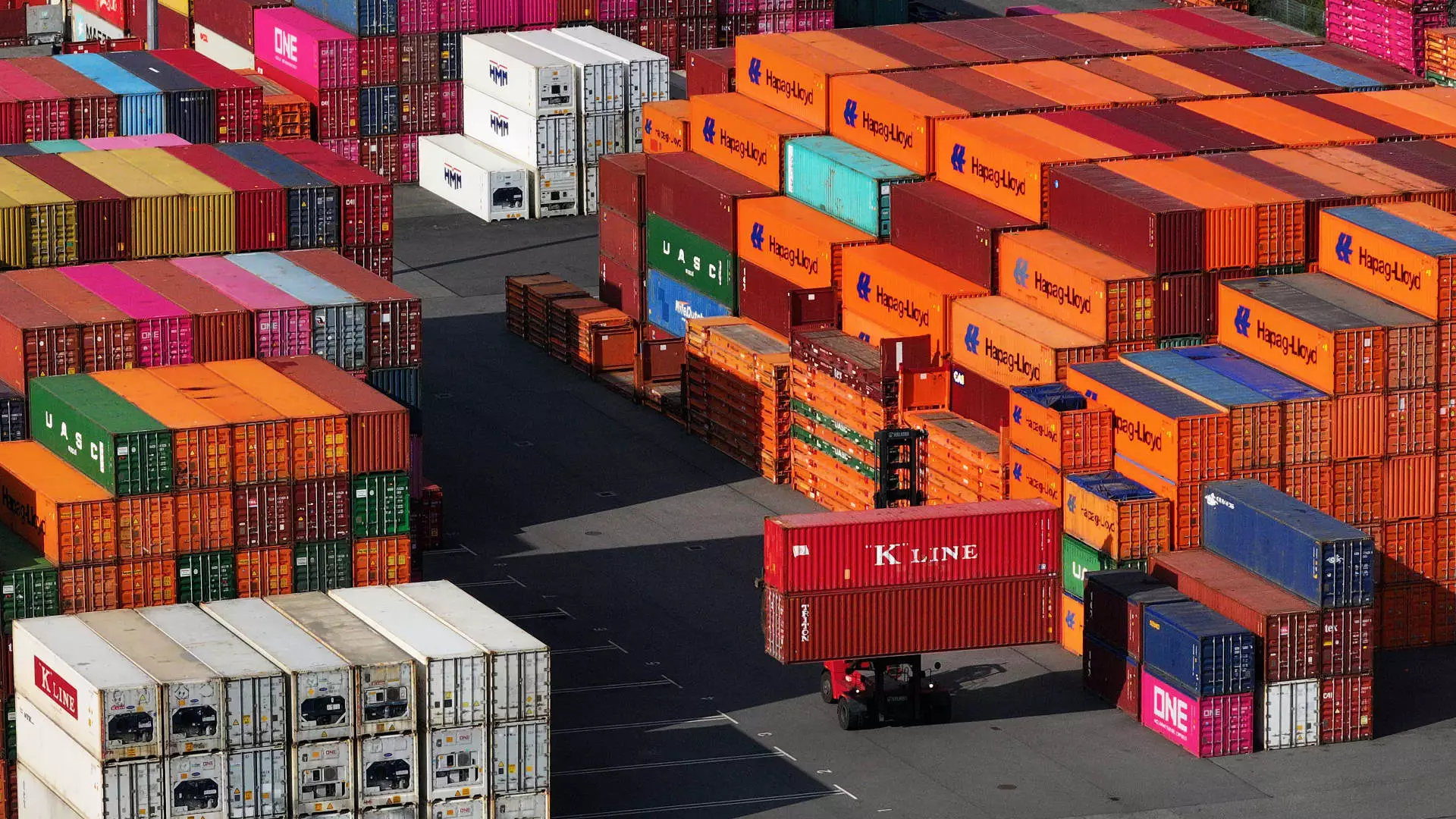In the landscape of modern economics, few concepts ignite as much debate as tariffs. Recently, President Donald Trump set the political and economic world ablaze with his audacious suggestion that revenue from tariffs could potentially replace federal income tax. This statement, made during an April 15 interview with Fox News, posits a radical shift in fiscal policy. However, the boldness of the claim begs for scrutiny, as it invites a critical examination of both its feasibility and implications for American taxpayers.
While this notion has an appeal that may resonate with some, the reality is far more complex and fraught with uncertainty. Experts within the fields of economics and public policy unequivocally express skepticism about the viability of such a strategy. The general consensus? Replacing the income tax with tariff revenue is not merely unlikely; it’s almost fanciful.
The Numbers Don’t Lie: Tariff Revenue Versus Income Taxes
To understand the challenges inherent in Trump’s tariff proposal, one merely needs to look at the numbers. The United States imported $3.1 trillion worth of goods in 2023, and while this might sound substantial, it pales in comparison when juxtaposed with the staggering $20 trillion in income that the government collects through income taxes. As Kimberly Clausing from the Peterson Institute for International Economics astutely observes, the tariff tax base is significantly smaller. Thus, the ambition to generate billions in revenues purely from tariffs, as suggested by the administration, falls flat under the weight of empirical evidence.
To illustrate just how unrealistic this proposition is, consider the projections made by White House trade advisor Peter Navarro, who claims tariffs could bring in around $600 billion annually. This figure, however, is labeled a “pipe dream” by Mark Zandi of Moody’s, who argues that even reaching $100 billion to $200 billion in tariff revenue would be optimistic at best. The implications of relying on such erratic revenue streams, especially in an era laden with economic volatility, compel us to question the validity of the entire tariff strategy.
A Dangerous Cycle: Higher Tariffs, Lower Revenue
The rationale behind increasing tariffs to balloon revenue is fundamentally flawed. It operates on a simplistic premise: the higher the tariff, the greater the revenue. But experts are warning us that this logic is painfully misguided. As tariffs rise, consumer behaviors shift; people buy fewer imported goods, thus shrinking the tax base intended to generate revenue. The consequence is a paradox where increased tariffs lead to diminished revenue, contradicting the very goals of their implementation.
Moreover, the increased cost of imported goods is passed onto consumers, leading to inflationary pressures that hamper overall economic growth. The International Monetary Fund recently downgraded U.S. growth projections in light of ongoing trade tensions, emphasizing the detrimental effects that tariffs can have on the broader economy. The impending stagnation from aggressive tariff policies ultimately leaves millions of American families to grapple with rising costs, making room for a discussion that’s seldom broached: who’s actually benefitting from such a strategy?
The Political Consequences: Tariffs and the Middle Class
Politically, the tariff strategy presented by the Trump administration could embolden divisive rhetoric that places blame on international partners rather than addressing underlying domestic economic issues. The ramifications of this rhetoric likely resonate more deeply with the middle class, who stand to lose out most. Tariffs disproportionately affect those who can least afford an increase in living costs, forcing resentments that may stoke further division within an increasingly polarized electorate.
Progressive and centrist economic policy advocates must challenge this narrative, promoting instead an approach that prioritizes sustainable economic growth through cooperative international trade and innovation rather than punitive tariffs that alienate allies and inhibit domestic prosperity.
While it may be enticing for some to dream of a tax system reliant on tariffs, the reality reveals a far grimmer truth. Sustainable fiscal policies are grounded in sound economic principles rather than whimsical notions of substituting complex tax structures with what is, at best, a momentary spike in revenue. In the end, the belief that lamentable tariff strategies can save the income tax is nothing less than wishful thinking.

